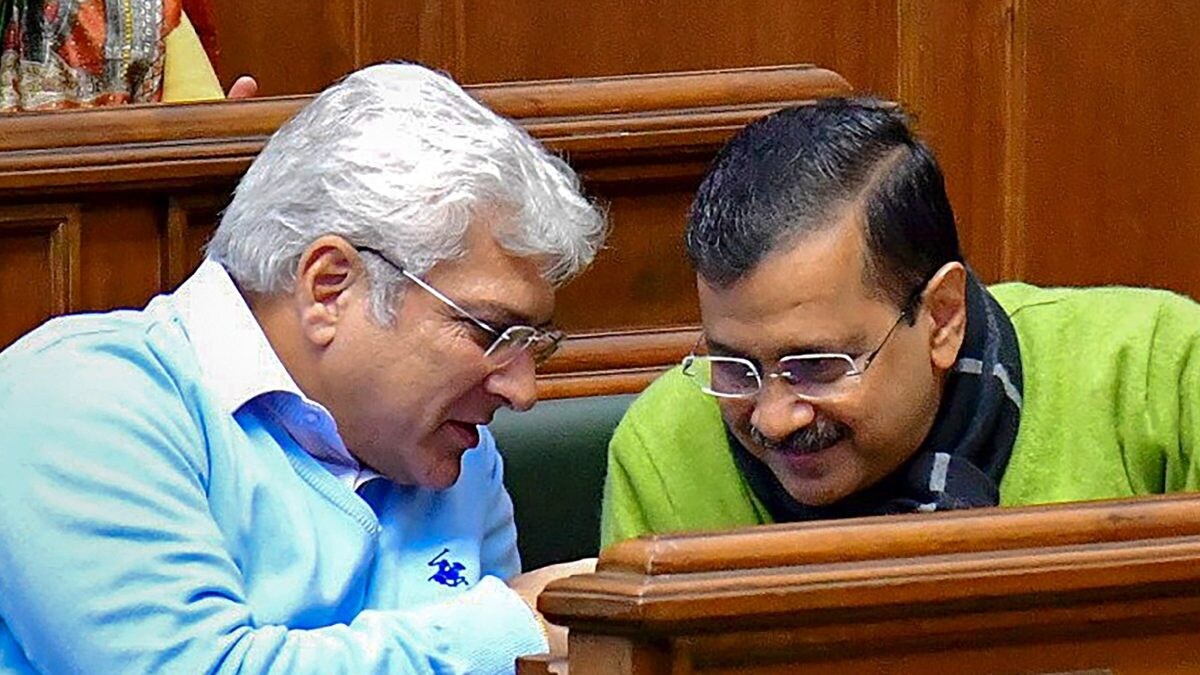 |
|
The recent resignation of Delhi Minister Kailash Gahlot from the Aam Aadmi Party (AAP) has sent shockwaves through the political landscape of Delhi, just weeks before crucial assembly elections. Gahlot, a prominent figure in the AAP government since 2015, cited a multitude of reasons for his departure, including unfulfilled promises to the people of Delhi, embarrassing controversies, and a perceived shift in the party's priorities away from citizen welfare towards internal political maneuvering. His resignation letter, publicly shared on social media platform X, directly addressed Arvind Kejriwal, the Chief Minister of Delhi, expressing his disappointment with the government's failure to tackle significant issues such as the pollution of the Yamuna river and the handling of controversies like the ‘Sheesh Mahal’ incident. The letter paints a picture of a party struggling with internal conflicts and a growing disconnect between its initial promises and its actions in power. Gahlot's departure is a significant blow to the AAP, highlighting potential internal divisions and eroding public confidence ahead of the elections.
The AAP's response to Gahlot's resignation has been swift and accusatory. Party leaders, including MLA Durgesh Pathak and MP Sanjay Singh, have attributed Gahlot's decision to alleged pressure from the Enforcement Directorate (ED) and the Income Tax Department. They claim that Gahlot was facing intense scrutiny and investigations, suggesting that his resignation was a strategic move forced upon him by the BJP, the main opposition party in Delhi. This narrative frames Gahlot's departure as a politically motivated maneuver by the BJP to destabilize the AAP before the elections. However, Gahlot himself has not explicitly confirmed any intentions to join the BJP, leaving the speculation open. This contrasting portrayal of events – Gahlot's stated reasons versus the AAP's counter-narrative – highlights the deeply partisan nature of the situation and the high stakes involved in the upcoming elections.
The BJP, meanwhile, has seized upon Gahlot's resignation as an opportunity to attack the AAP government and question Arvind Kejriwal's leadership. BJP leaders, including Kapil Mishra, have welcomed Gahlot's departure, interpreting his letter as a damning indictment of the AAP's governance and ethical standards. They highlight Gahlot's accusations of corruption and broken promises as evidence of the AAP's failures and declining popularity. The BJP’s statements suggest that Gahlot's revelations corroborate their long-standing criticism of the Kejriwal-led government. This adds a layer of complexity to the narrative, presenting the resignation not merely as an internal AAP matter but as a significant event with broader implications for the upcoming election campaign. The BJP has amplified Gahlot's accusations, using them to bolster their own campaign and undermine the credibility of the AAP.
The timing of Gahlot's resignation is particularly significant, given the proximity of the Delhi assembly elections. His decision could significantly impact the AAP's electoral prospects, potentially eroding its support base. The controversy surrounding his departure is likely to dominate media coverage in the coming weeks, providing the opposition parties with ample ammunition to attack the ruling party. The accusations of corruption and broken promises, regardless of their veracity, are damaging to the AAP's image, particularly given their initial focus on ethical governance and anti-corruption campaigns. This incident raises serious questions about the AAP’s internal cohesion and its ability to govern effectively, and this internal strife could sway voter opinions as election day draws near. The coming weeks will be crucial in assessing the long-term consequences of Gahlot's resignation and its impact on the Delhi electoral landscape.
Beyond the immediate political fallout, Gahlot's resignation raises broader questions about the functioning of the Delhi government and its accountability to the citizens. His allegations of unfulfilled promises and the dominance of political agendas over citizen welfare underscore the importance of transparency and good governance. The controversy also highlights the challenges of maintaining ethical standards in politics, particularly in the context of high-stakes electoral contests. The events surrounding Gahlot's departure serve as a reminder of the complexities and pressures inherent in political leadership, especially in the highly competitive environment of Delhi's political arena. The incident underscores the need for robust mechanisms to ensure accountability and transparency within government and political parties, and the potential consequences of failures to uphold these standards.
Source: In Big Jolt To Arvind Kejriwal, Delhi Minister Kailash Gahlot Quits AAP Ahead Of Elections
